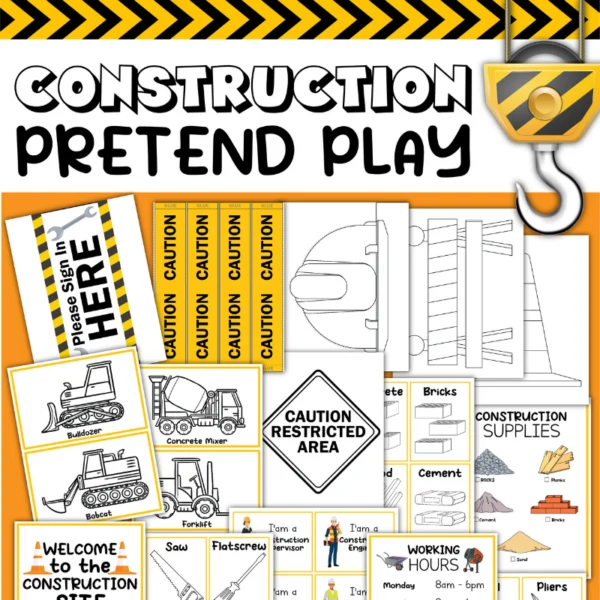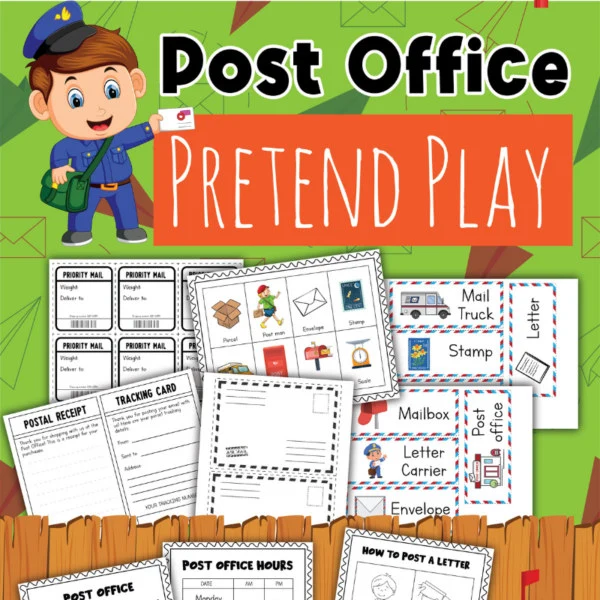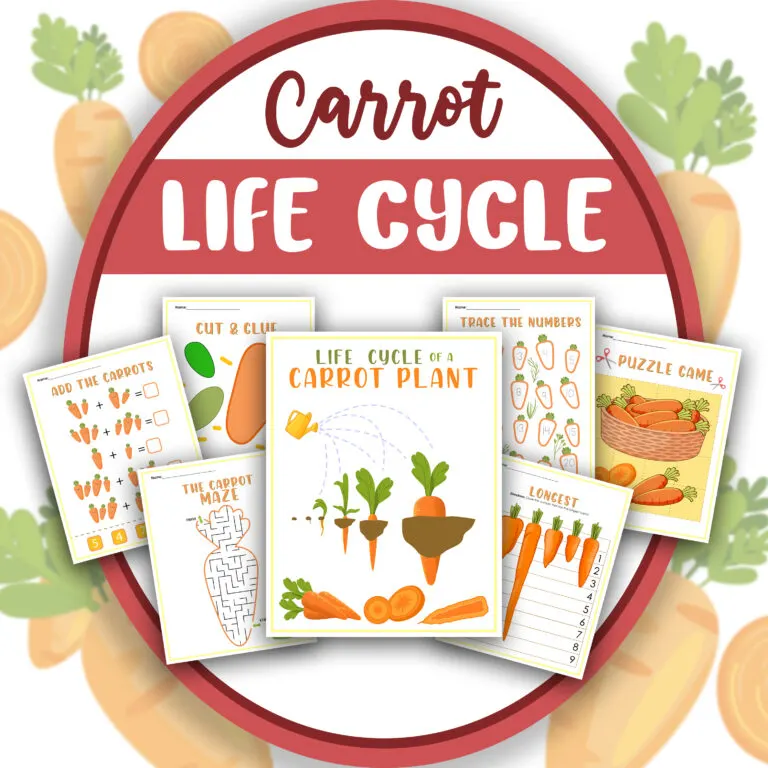As a parent, you want your child to grow up and succeed in all aspects of life. One essential skill for them to learn is problem-solving skills.
Problem-solving is a critical skill that helps your child think creatively, develop logical reasoning, and make sound decisions. It will come in handy in their academics, social life, and future careers. Being able to problem solve is an essential part of child development skills!

In this blog post, we will discuss practical strategies and techniques that parents can use to help their children enhance their problem-solving abilities.
Problem-solving skills for children encompass identifying challenges, analyzing situations, and developing effective strategies to overcome obstacles. These skills are crucial for fostering independence, critical thinking, and resilience in young individuals as they navigate various aspects of their lives.
Whether resolving conflicts with peers, tackling academic problems, or adapting to new experiences, developing problem-solving skills equips children with the tools to approach and conquer diverse situations.
Why are problem-solving skills important?
Problem-solving skills are crucial for children as they enable them to navigate life’s challenges, make informed decisions, and develop confidence and independence.
These skills empower children to analyze complex situations, identify obstacles, and devise effective strategies to overcome them, laying the foundation for success in their development.
Teaching and Cultivating Problem-Solving Skills for Kids
Teaching problem-solving skills to children is crucial for their cognitive development and future success. Here are some effective methods tailored specifically for kids:
Hands-On Activities
Engage children in hands-on activities that require problem-solving, such as puzzles, building blocks, and simple science experiments. These activities help them develop critical thinking and logical reasoning.
Storytelling and Role-Playing
Use storytelling and role-playing to present problem-solving scenarios in a fun and relatable way. Encourage kids to devise creative solutions to the characters’ challenges in the stories or during role-playing activities.
Encouraging Curiosity
Encourage kids to ask questions and explore new ideas. This can foster a sense of curiosity, leading to a natural inclination toward problem-solving and innovation.
Emphasizing Perseverance
Teach children the importance of perseverance when facing obstacles. Help them understand that it’s okay to encounter setbacks and that persistence leads to finding solutions.
Gamified Learning
Introduce educational games and apps that involve problem-solving playfully and interactively. These tools can make learning enjoyable while strengthening kids’ cognitive abilities.
Parents and teachers can help kids develop their problem-solving skills for whatever life throws their way by teaching them how to tackle problems in school and at home.
Creating a Growth Mindset
A Growth mindset emphasizes the belief that one’s abilities can be improved through hard work, dedication, and perseverance.
Encourage your child to adopt this mindset, focusing on the process of learning and experimenting rather than on the result.
How To Improve Your Child’s Problem-Solving Skills
Let your child know that it’s okay to try new things and make mistakes, and encourage them to explore different solutions to problems.
Even if their solution does not work, experimenting will stimulate their creativity and problem-solving skills and boost their self-confidence.
Engage in Puzzles, Games, and Brain Teasers
Puzzles, games, and brain teasers are an excellent way to hone your child’s problem-solving abilities. Games like chess, Sudoku, and Scrabble stimulate the mind and promote critical thinking skills.
Jigsaw puzzles help children understand spatial awareness, while brain teasers help improve mental agility and memory retention.
Teach Your Child to Breakdown Problems
Your child may encounter complex problems that may seem overwhelming to solve. Encourage them to break down the problems into smaller and manageable parts.
This approach will help your child better understand the problem, analyze the situation, and develop a feasible solution. It will also promote critical thinking and logical reasoning skills.
Provide Opportunities for Creative Problem Solving
Provide your child with opportunities to engage in creative problem-solving activities, such as hands-on activities like building blocks, drawing, crafts, or cooking.
These activities promote problem-solving and experimentation and encourage children to use their imagination to create.
Fostering an Environment for Developing Problem-Solving Skills
Developing problem-solving skills is crucial for personal and professional growth. Creating an environment conducive to promoting the development of these skills involves several key factors:
- Encourage Curiosity: Encouraging curiosity allows individuals to explore different perspectives and seek innovative solutions. Encourage questions and provide resources for further exploration.
- Embrace Challenges: Cultivate a mindset that views challenges as opportunities for growth. Encourage individuals to tackle difficult problems and support them in their journey.
- Promote Collaboration: Collaboration fosters diverse thinking and helps individuals learn from one another. Create opportunities for teamwork and group problem-solving activities.
- Provide Resources: Ensure access to resources such as books, online courses, and mentorship programs to help individuals enhance their problem-solving skills.
- Celebrate Creativity: Recognize and celebrate creative thinking and unique solutions. This can inspire others to think outside the box when approaching problems.
- Feedback Culture: Create an environment where feedback is valued and used constructively. Encourage individuals to reflect on their problem-solving approaches and learn from the feedback provided.
These tips can help you create an environment that builds strong problem-solving skills, empowering folks to tackle challenges with confidence and creativity.
Learning Printables and Activities
These are excellent resources for kids! They’ll love being a part of the learning process from start to finish.



Comparing Problem-Solving Skills with Other Developmental Skills
Problem-solving skills are essential for navigating life’s challenges, but they are just one aspect of a broader set of developmental skills.
Let’s compare and contrast problem-solving skills with other key developmental skills:
Critical Thinking:
Tips for Development: Encourage exploration, provide opportunities for decision-making, and support the development of reasoning and logical thinking.
Unique Aspects: Critical thinking involves analyzing information, evaluating options, and forming well-reasoned judgments, often in more abstract or academic contexts.
Creativity:
Tips for Development: Encourage imaginative play, provide art supplies and creative tools, and support exploring new ideas and solutions.
Unique Aspects: Creativity involves generating original ideas, thinking outside the box, and approaching problems with unconventional perspectives, often in artistic or innovative contexts.
Communication Skills:
Tips for Development: Encourage active listening, teach empathy, model effective communication, and provide opportunities for public speaking and storytelling.
Unique Aspects: Communication skills involve expressing ideas clearly, understanding others’ perspectives, and adapting communication styles for different audiences and purposes.
Adaptability:
Tips for Development: Expose individuals to new experiences, teach resilience, and encourage flexibility when facing change or unforeseen circumstances.
Unique Aspects: Adaptability involves adjusting to new situations, learning from setbacks, and thriving in diverse or unpredictable environments.
Collaboration:
Tips for Development: Promote teamwork, teach conflict resolution, and provide opportunities for group projects and shared decision-making.
Unique Aspects: Collaboration skills involve working effectively with others, valuing diverse opinions, and achieving common goals through collective effort.
While problem-solving skills are integral to navigating specific challenges and obstacles, these other developmental skills complement and enrich problem-solving.

Improving your child’s problem-solving skills will prepare them for future success in school, social life, and career.
As a parent, you can help your child by providing tools, guiding them, and providing constructive feedback. Encouraging your child to experiment, engage in puzzles, teach them to break down problems, foster a growth mindset, and provide opportunities for creative problem-solving will go a long way in improving their problem-solving skills.
Remember, the more they practice, the better they get. So, start today and let your child reap the benefits of enhanced problem-solving skills!































